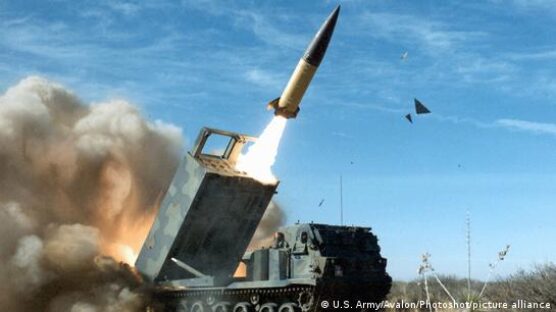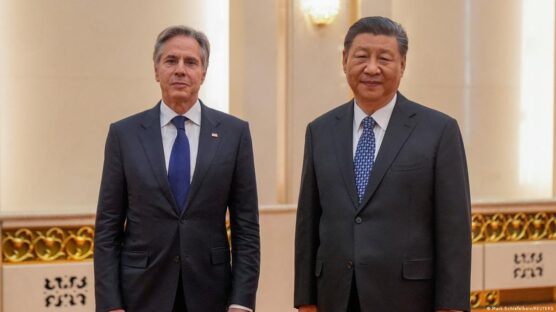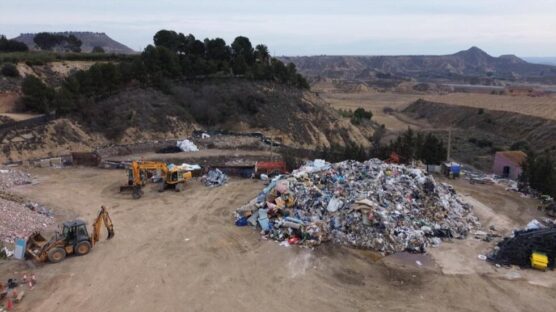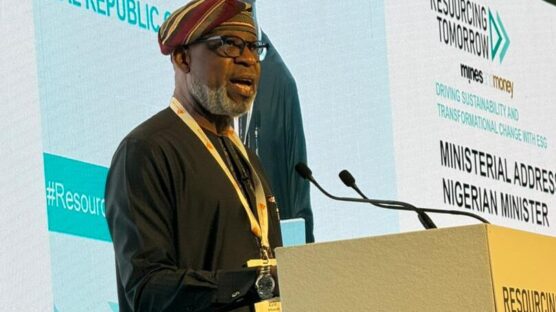OECD warns of worst peacetime recession in a century
By France24
21 June 2020 |
2:50 pm
The global economy is facing its worst peacetime crisis in almost 100 years, according to the Organisation for Economic Co-operation and Development. In its latest forecast, the OECD warns the effects of the slump will be "dire and long-lasting" after a 6 percent plunge in global growth this year.
In this article
Related
Related
1 day ago
The US has said it secretly delivered long-range ATACMS missiles to Ukraine. This has drawn focus to the debate over providing Taurus cruise missiles, a move the German chancellor continues to oppose.
1 day ago
Human Rights Watch says 223 civilians were summarily executed by soldiers in a single day in Burkina Faso. Also, heavy rain continues to bring devastation in Kenya's capital Nairobi, with roads turned into rivers. And it's been a year since Ghana started using a new malaria vaccine. Children have received more than two million doses.
1 day ago
In India's 2024 election, half of the registered voters are women. Yet only a small percentage of them are running for office. In this video, we explore why are there so few female politicians.
1 day ago
Chinese President Xi Jinping said the US and China should be "partners, not rivals," as a series of issues, including Chinese aid for Russia in its war against Ukraine, continue to separate the countries.
1 day ago
Earlier reports had suggested ByteDance planned to sell the app, without its powerful algorithm. Earlier this week, US President Biden signed a law that would effectively ban TikTok in the US if it is not sold.
1 day ago
Over the past two years, the French and Spanish police have been discovering the extent to which rubbish is illegally smuggled across the border. The phenomenon has long plagued Italy, where the mafia organises the trafficking, and is now reaching France and Spain.
Latest
1 hour ago
Nigeria has revoked 924 dormant mining licences while calling on investors to apply for the licences offered on a first-come, first-served basis. Meanwhile, the Lagos Chamber of Commerce and Industry is urging the government to review the mining industry strategy to attract mineral exploration investments, reignite mining project development, and accelerate new mineral discoveries.
1 hour ago
Engineers at Columbia University's Creative Machines Lab have developed Emo – a robot capable of mimicking human facial expressions – to “enhance the interactions between humans and robots.” Emma Jehle has more.
1 hour ago
The first fitness summit and Awards event in Nigeria, Wemove, took place at Lekki Phase I, Lagos a few weeks back. Powered by the Institute Of Registered Exercise Professionals And Purefitness Africa, the event brought together all fitness lovers and professionals, from across the country, in a bid to celebrate fitness and wellness in Nigeria. GuardianTV was at the event to report all the conversations on core issues faced by the fitness industry in Nigeria.
1 day ago
Find these stories and much more when you grab a copy of The Guardian on Saturday.
1 day ago
Trump and Duda discussed a range of issues, including Russia's invasion of Ukraine. Ahead of the November US presidential election, Trump is taking time to forge ties with foreign leaders.
1 day ago
April 22 marks Earth Day, and this year's theme is "Planet vs. Plastics". Over the past 60 years, around 7 billion tons of plastic have been produced, according to the UN. But only around 10 percent of it has been recycled. Initiatives are flourishing around the world to tackle the waste crisis, including new technology to improve recycling rates.
×

Get the latest news delivered straight to your inbox every day of the week. Stay informed with the Guardian’s leading coverage of Nigerian and world news, business, technology and sports.


















0 Comments
We will review and take appropriate action.